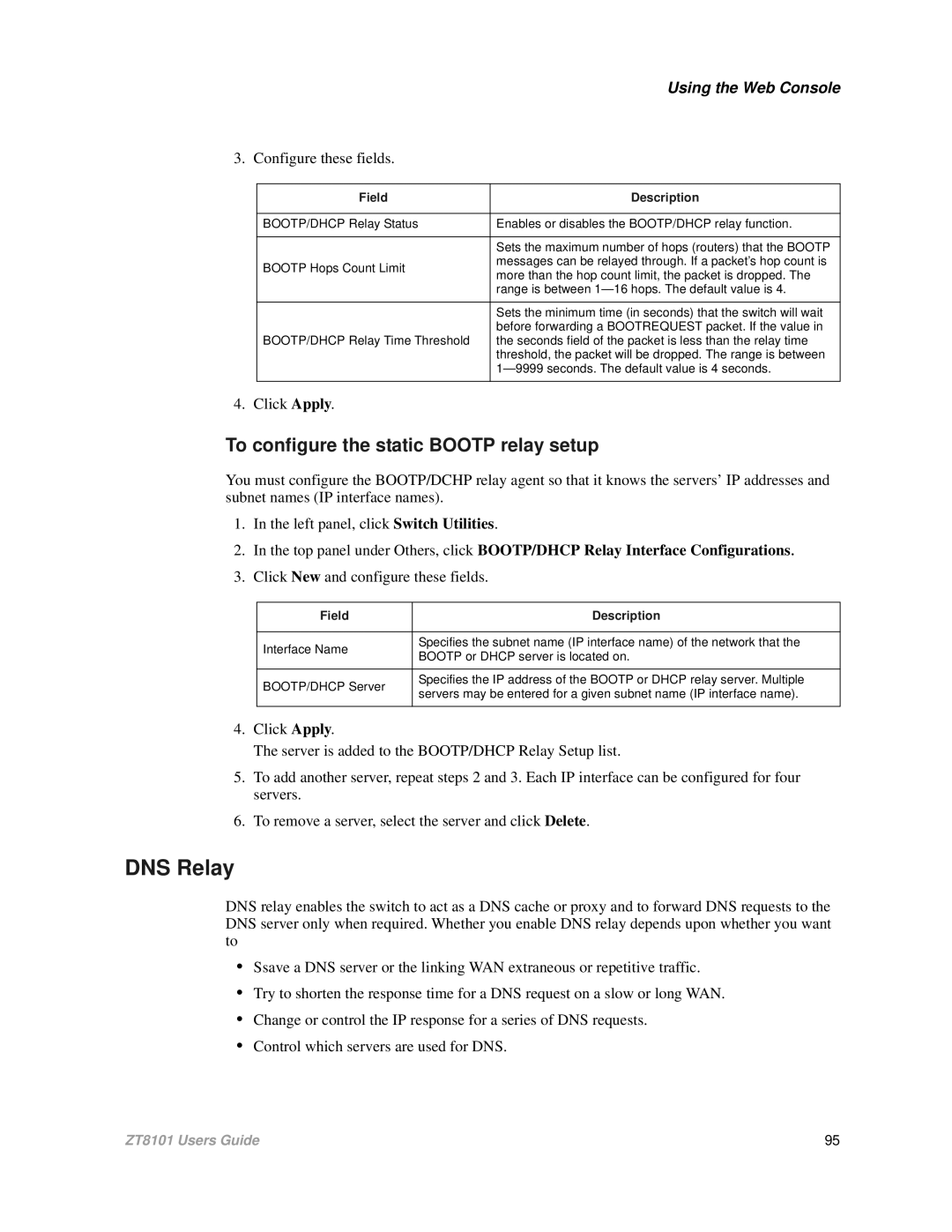|
|
| Using the Web Console |
3. | Configure these fields. |
| |
|
|
|
|
|
| Field | Description |
|
|
|
|
|
| BOOTP/DHCP Relay Status | Enables or disables the BOOTP/DHCP relay function. |
|
|
|
|
|
|
| Sets the maximum number of hops (routers) that the BOOTP |
|
| BOOTP Hops Count Limit | messages can be relayed through. If a packet’s hop count is |
|
| more than the hop count limit, the packet is dropped. The | |
|
|
| |
|
|
| range is between 1— 16 hops. The default value is 4. |
|
|
|
|
|
|
| Sets the minimum time (in seconds) that the switch will wait |
|
|
| before forwarding a BOOTREQUEST packet. If the value in |
|
| BOOTP/DHCP Relay Time Threshold | the seconds field of the packet is less than the relay time |
|
|
| threshold, the packet will be dropped. The range is between |
|
|
| 1— 9999 seconds. The default value is 4 seconds. |
|
|
|
|
4. | Click Apply. |
| |
To configure the static BOOTP relay setup
You must configure the BOOTP/DCHP relay agent so that it knows the servers’ IP addresses and subnet names (IP interface names).
1.In the left panel, click Switch Utilities.
2.In the top panel under Others, click BOOTP/DHCP Relay Interface Configurations.
3.Click New and configure these fields.
Field | Description | |
|
| |
Interface Name | Specifies the subnet name (IP interface name) of the network that the | |
BOOTP or DHCP server is located on. | ||
| ||
|
| |
BOOTP/DHCP Server | Specifies the IP address of the BOOTP or DHCP relay server. Multiple | |
servers may be entered for a given subnet name (IP interface name). | ||
| ||
|
|
4.Click Apply.
The server is added to the BOOTP/DHCP Relay Setup list.
5.To add another server, repeat steps 2 and 3. Each IP interface can be configured for four servers.
6.To remove a server, select the server and click Delete.
DNS Relay
DNS relay enables the switch to act as a DNS cache or proxy and to forward DNS requests to the DNS server only when required. Whether you enable DNS relay depends upon whether you want to
•Ssave a DNS server or the linking WAN extraneous or repetitive traffic.
•Try to shorten the response time for a DNS request on a slow or long WAN.
•Change or control the IP response for a series of DNS requests.
•Control which servers are used for DNS.
ZT8101 Users Guide | 95 |
